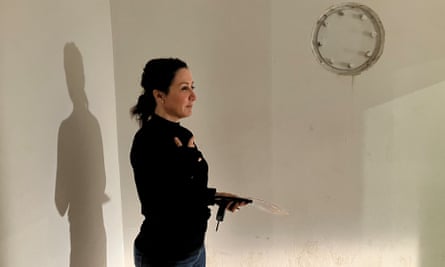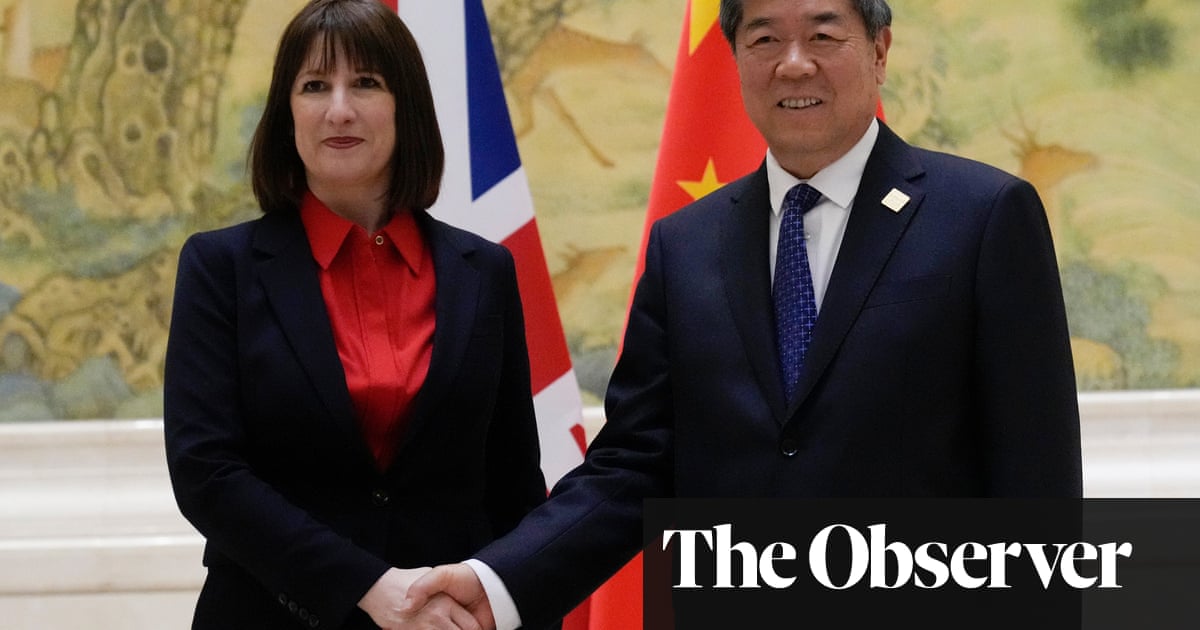There is a crack, a boom and a siren, all more or less simultaneously. Sergio Helman has not quite reached the concrete shelter a dozen metres away from his hummus restaurant, off highway 99, which marks the northernmost limit of the northern Israeli town of Kiryat Shmona.
The 60-year-old shrugs and explains that Hezbollah fires the rockets from so close that Israeli air defence systems can give only 15 seconds warning at best.
“But I always try to get to the shelter … I’ve got five children to support so I have to stay alive to keep my restaurant open,” he said.
Business at Helman’s restaurant has not been good in recent months. The evacuation of most of the population of Kiryat Shmona and the surrounding communities in the days after Hamas’s 7 October attack into southern Israel last year means his usual customers are sometimes a 100km away or more. Neighbouring eateries are closed and the shared car park is strewn with fallen branches.
This soon may change. A ceasefire to end the 13-month conflict between Israel and the Lebanese Islamist militant movement Hezbollah now looks possible, even likely.

More than 3,750 people, both combatants and civilians, have been killed in Lebanon, health officials say, and about a million are displaced. Forty-four civilians and more than 70 soldiers have been killed in Israel’s north.
Following the visit of the US envoy Amos Hochstein to Beirut and Jerusalem last week, Israel’s security cabinet is due to meet on Tuesday to decide on a ceasefire proposal.
Many – but not all – of the 60,000 Israelis who have been displaced from their homes in the north of the country since Hezbollah rocket fire began on 8 October last year welcome news of an imminent end to the war.
Erez Bergman, 51, left the kibbutz of Snir, a kilometre or so from Kiryat Shimona, days after the outbreak of the conflict and spent months in hotels with his wife and three children before ending up in a rented house in the small central Israeli town of Bat Ofer.
There are some advantages to his new life: coffee shops, theatre and concerts in nearby Tel Aviv. Even if hundreds of rockets have been fired weekly into central Israel by Hezbollah in recent months, almost all are intercepted and casualties have been light.
A former senior artillery officer, Bergman said the IDF’s airstrikes across Lebanon and its extensive ground attack into southern Lebanon had “done a good job”, so the time had come to end the war. Military officials say the IDF has destroyed much of Hezbollah’s military infrastructure along the border.
“Hezbollah is here to stay, and they don’t like us … but we had 17 years of peace after the last war with them [in 2006]. The Middle East being what it is there will be something else of course but if we get another 15 years of calm, that’d be OK. It’d be enough for my kids to grow up,” Bergman said.
The road to Snir from Helman’s restaurant runs within two kilometres of the contested border with Lebanon, where a plume of smoke rises from a village to the north. The few cars there are drive fast.
There is little sense at the kibbutz that the war is winding down. Artillery is clearly audible, as are the launch of anti-rocket missiles that leave a brown trail through the blue sky. Israeli warplanes roar overhead.
Lior Shelef, 48, has been in charge of Snir’s security team since the beginning of the war. His wife and three children now stay in another kibbutz, 30km away.
“There is a very direct link between the people who live on the border here, and those who live on the border in Gaza … When they were attacked [on 7 October last year] we felt we would be too. We had seen [Hezbollah elite] forces building up and we knew they were watching us,” Shelef said.

Now, Shelef said, he would welcome a “solid deal” within three months.
“We are not expecting a promise of eternal peace. I just want a quiet life to raise my kids and I know that the Lebanese people over the fence want the same … All wars end in diplomatic agreements so this will too,” he said.
The proposed deal involves an initial two-month ceasefire during which Israeli forces would withdraw from Lebanon and Hezbollah would end its armed presence between the southern border and the Litani River.
Avi Dichter, an Israeli minister and member of the security cabinet, told the Guardian on Sunday: “When people get back to the settlements along the border with Lebanon, after reaching the agreement with Hezbollah, they will be able to go back … knowing that they’re going to live there safe and sound.”
But while under pressure to return Israelis to their homes in the north, Netanyahu knows too that much of the public, particularly his own supporters, fear a premature end to hostilities. A recent poll by the Institute for National Security Studies thinktank found that a third of Israelis wanted the offensive expanded “until Hezbollah is disarmed”.
In Kiryat Shmona itself, views are more hawkish than in the surrounding kibbutzim, reflecting deeper social, political and economic divisions in Israel. Kibbutz residents who live close to the border have a history of opposition to the Netanyahu government, the most rightwing in the history of Israel. They are also more prosperous than many in Kiryat Shmona, a stronghold of Netanyahu’s Likud party.
Yamit Malul Yanai, a commentator and lawyer from Kiryat Shmona who was interviewed in a rocket shelter during repeated alerts, said: “There is massive resentment in the town. The two communities have very different views of this war.”
She added: “The residents of Kiryat Shmona don’t want to be a human shield for the rest of the country. We have to have a real deal, a real victory or we won’t go back. I don’t think we are close to the end of this war.”

.png) 1 month ago
8
1 month ago
8













































